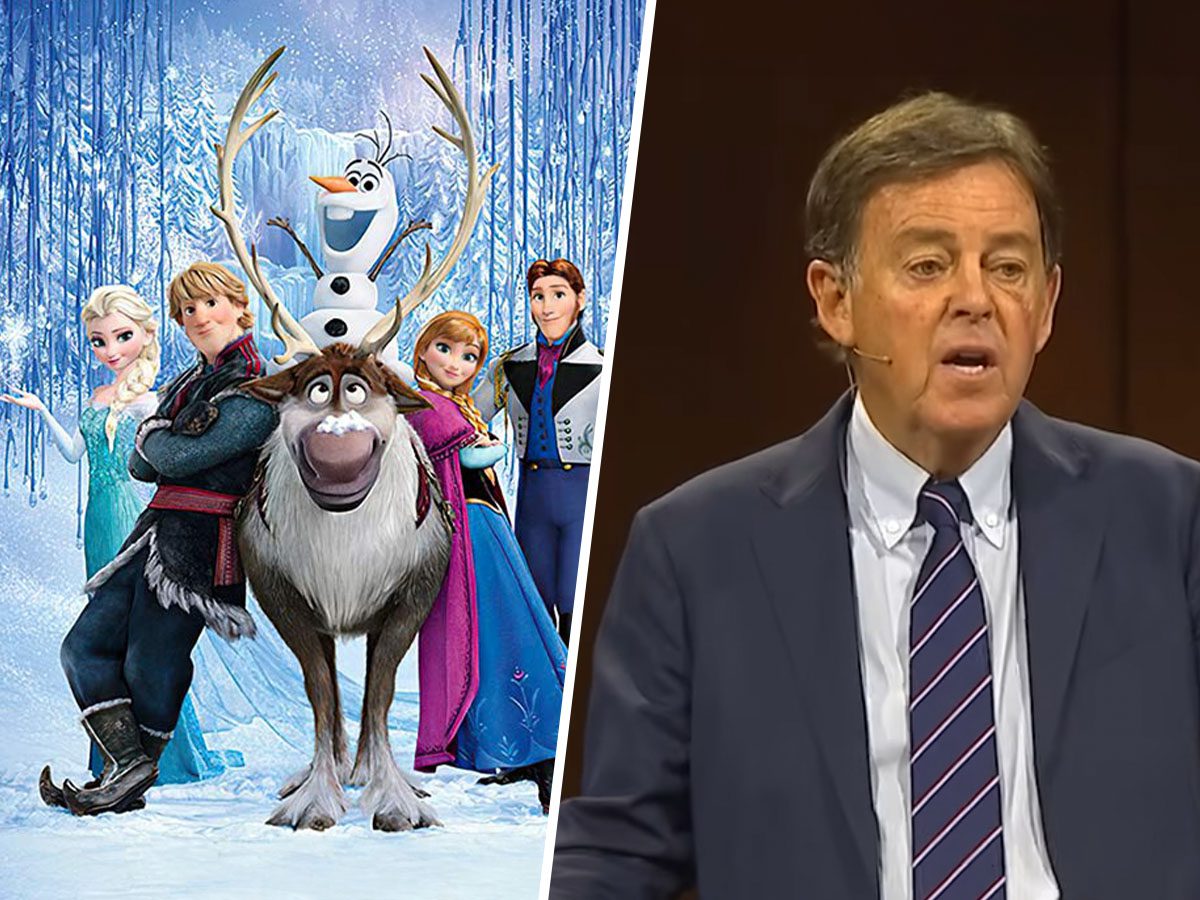
In 2013, the world was swept away by the enchanting melody of “Let It Go,” the Oscar-winning song from Disney’s Frozen. It became an anthem for millions of children and adults alike, resonating with its message of self-discovery and empowerment. Yet, amidst its widespread acclaim, a different perspective arises from Pastor Alistair Begg of Parkside Church in Cleveland. In a recent sermon, Begg challenged the worldview espoused by the song, contrasting it with the biblical definition of freedom—a concept often misunderstood in today’s culture.
Pastor Begg began by critiquing the contemporary notion of freedom, which he described as an illusion. “What our contemporary world regards as freedom is an illusion,” he stated, emphasizing that true freedom, according to scripture, is not about the absence of restrictions but rather the embracing of them under the yoke of Jesus Christ.
Begg delved deeper into the paradoxical nature of biblical freedom. He explained, “To be myself, I have to deny myself. To be free, I have to give up my freedom. To live, I have to die to myself. To find myself, I have to lose myself.” This concept stands in stark contrast to the message of Frozen, where Elsa’s journey of self-discovery leads her to a place where she declares, “No right, no wrong, no rules for me. I’m free.”
For Pastor Begg, the lyrics of “Let It Go” represent more than just a catchy tune—they symbolize a self-centered worldview that dismisses the importance of God’s authority and the moral boundaries He sets. Citing Deuteronomy 6, Begg reminded his congregation that God commands His people to love Him with all their heart, soul, and might. This love is not merely an emotional response but a commitment that encompasses every aspect of life. “We were made by God to know God, to love God, and to serve God,” he emphasized.
In contrast, Elsa’s declaration in Frozen serves as a “classic representation, in miniature form, of the egotistical framework of a society that has chosen to live without God—one that wants no notion of yoke,” Begg argued. He pointed out that the song’s message reflects the pervasive ideology of expressive individualism, where personal desires and self-expression take precedence over communal responsibilities and divine authority.
Begg’s sermon serves as a reminder that while cultural artifacts like “Let It Go” may seem harmless, they often carry deeper philosophical messages that can subtly shape our understanding of freedom and identity. In a society that increasingly celebrates individual autonomy and self-expression, Begg’s words challenge us to reconsider what it truly means to be free.
True freedom, according to scripture, is found not in the absence of restrictions but in the acceptance of God’s rule over our lives. Begg drew on a quote from Bob Dylan’s 1979 song, “Gotta Serve Somebody,” to underscore this point: “It may be the devil, or it may be the Lord, but you’re gonna have to serve somebody.” In other words, everyone serves something or someone, whether they realize it or not. The question is, whom will we choose to serve?
Begg concluded that in Jesus Christ, we find a freedom that liberates us from the tyranny of self-centeredness and the shifting sands of contemporary culture. This freedom is not about living without boundaries but about finding our true identity and purpose within the loving constraints of God’s will. It’s a freedom that calls us to live not for ourselves but for God and the benefit of others.
As we navigate a world filled with messages that encourage us to “let it go” and pursue our desires, Begg’s sermon reminds us to hold fast to the biblical understanding of freedom—a freedom that paradoxically requires us to surrender our lives to the One who created us, loves us, and knows what is truly best for us.


